In Western culture, talents are often considered to be outstanding individuals, creative, and capable of leadership; society needs to focus on discovering and developing individuals with outstanding abilities early on, through intensive training and development programs. In Eastern culture, talents are often considered to be people with high moral qualities, community awareness, loyalty, and a sense of responsibility towards the collective. Both the West and the East view the talent factor the same, meaning that the core elements of talent are creativity, outstanding thinking, high professional qualifications, and standard professional ethics, with the ability to contribute to the implementation of national goals.
Talent attraction policy is a state policy to create conditions for talents to develop their creative capacity. Countries set out policies to attract talents because:
Talent attraction policies help countries access and retain individuals with high and outstanding professional skills and capabilities, thereby improving the performance of the public administration system. Talent in the public sector has the ability to make strategic decisions, innovate management processes and apply technology to improve public services; this has a direct impact on improving governance efficiency and reducing corruption.
The policy of attracting talent contributes to strengthening people's trust in the state, because when the state apparatus is operated by individuals with high professional capacity and professional ethics, transparency and accountability in public management will promote people's trust, creating favorable conditions for the development process.
Talent attraction policies help countries improve their governance capacity and respond quickly to global challenges such as climate change, environmental pollution, health crises, social inequality, etc.
Experience of some Asian countries in implementing policies to attract talent
Experience of Singapore
Singapore is one of the leading countries in attracting and developing talent in the public sector; attracting talent is considered a top priority in economic and social development strategies. The Singapore government has implemented many policies to attract domestic and foreign talent, from scholarship programs, financial support, and career development opportunities. One of the outstanding policies is the Public Service Commission (PSC) Scholarship Program, where outstanding students are granted scholarships to study at the world's leading universities, then return to serve in the public sector (1) . This is a comprehensive training program, providing civil servants with management, leadership and problem-solving skills through participation in important national projects, in which the highlight is focusing on developing long-term leadership capacity, instead of relying solely on seniority or age.
According to the Singapore Public Service Ministry Report (2021), the Public Service Scholarship Programme has helped Singapore build a dynamic young leadership team capable of responding to new challenges in public management. This programme is not only an opportunity for advancement but also a commitment by the Singapore Government to maintain continuity and sustainable development of the public sector leadership team (2) .
One of Singapore’s unique policies is to encourage flexible transfer of talent between the public and private sectors, thereby helping the public sector to absorb practical experience and innovation from the private sector. This transfer not only helps civil servants gain multi-dimensional management experience but also helps them apply modern management methods to the public sector. A major difference between Singapore and many other countries is that it encourages talent to return to the public sector after a period of working in the private sector, through flexible remuneration policies and a dynamic working environment.
Singapore has established a rigorous civil service recruitment mechanism that combines individual and leadership assessment. Those who are recruited into the public sector not only enjoy high salaries but also have the opportunity to participate in professional development programs, from leadership training courses to international exchange programs. Furthermore, Singapore creates a modern and advanced working environment, with a developed information technology system, which enhances the working capacity of talents.
Singapore’s talent attraction policy has helped the country build an efficient and transparent public sector system, thereby promoting rapid economic development. According to a World Bank report, “Singapore is among the countries with the highest public management efficiency in the world” (3) . Talents participating in the public sector have contributed greatly to policy reform and the implementation of sustainable development measures.
Experience of Japan
One of Japan's key policies to attract talent to the public sector is to reform the civil servant recruitment process. According to a report by the Ministry of Internal Affairs (2021), the process has been simplified to increase transparency and fairness. Japan has applied digital technology to civil servant recruitment, thereby facilitating the recruitment of capable candidates from prestigious universities and the private sector. The shift from seniority-based selection to practical competency-based selection has played an important role in attracting young and talented candidates.
Japan has taken steps to adjust its compensation and benefits policies for civil servants to compete with the private sector. Benefits such as health insurance, retirement, and family support have been improved, and salaries and bonuses have been adjusted based on performance rather than seniority alone. These efforts not only motivate civil servants, but also help attract experienced professionals from the private sector, reducing the “brain drain.”
Training semiconductor researchers and engineers at Kumamoto University, Japan_Source: asia.nikkei.com
The Japanese government has taken drastic measures to create a better work-life balance for public employees, including reducing working hours and encouraging the adoption of flexible work models such as teleworking in the public sector. This policy is aimed at making the public sector more attractive to highly skilled professionals, especially young talent and women, who often face pressures of family, work and life.
Japan is gradually internationalizing its public sector by attracting foreign talent, especially experts in the fields of information technology, project management, and scientific research. International cooperation programs and preferential visa policies for foreign talent have been implemented to reduce immigration barriers and facilitate international labor. However, the language barrier remains a major obstacle to integrating international talent into Japan's public administration system.
The Japanese government also implements many leadership training and development programs to develop young talents in the public sector, focusing on equipping them with management and leadership skills. The programs not only help improve professional skills but also develop soft skills, such as project management and strategic decision making; significantly improving the capacity of senior managers in the public sector (4) .
In the current period, Japan has achieved many results in attracting and developing talents, but still faces difficulties due to the aging population. The shortage of highly qualified young labor is posing a great challenge for Japan in maintaining global competitiveness.
Experience of China
The Special Civil Service Program is one of China's prominent policies to attract experts and talents in strategic areas such as technology, science and public management to the public sector. Through the program, the Chinese government provides special incentives in terms of salary, bonuses, housing, and rapid promotion opportunities for talented people, especially aiming to attract individuals with international experience and in-depth knowledge in many important fields to enhance the global competitiveness of the public sector. The Special Civil Service Program also focuses on attracting young talents from prestigious domestic and international universities through competitive recruitment and intensive training programs in public management.
The Thousand Talents Program is launched by China to attract top experts and outstanding researchers from around the world to work in the public sector and state-owned research institutions. The program offers attractive compensation packages, including research funding, high salaries and bonuses, and supports the best working conditions to attract top experts in high technology, natural sciences, and management.
According to the China National Talent Development Commission Report (2020), the Thousand Talents Program has helped China attract more than 7,000 international experts since 2008, including many Nobel Prize-winning scientists and senior managers in multinational corporations (5) .
China has made extensive adjustments and improvements to its civil service recruitment process to attract and retain highly qualified people. The policy focuses on shifting from seniority-based recruitment to merit-based recruitment. Current civil service examinations are designed to comprehensively assess candidates’ professional abilities, management skills, and development potential. According to the Ministry of Human Resources and Social Security of China, these improvements have enhanced transparency and fairness in the civil service recruitment process, while creating opportunities for truly qualified candidates to enter the public sector without being constrained by traditional administrative factors (6) .
The Chinese government has invested heavily in its compensation and benefits system for civil servants to compete with the private sector. Civil servants in strategic sectors such as science, technology, and economic management enjoy high salaries, along with benefits such as health insurance, housing subsidies, and children’s education. The compensation policy helps China not only retain talented people in the public sector but also attract experienced individuals from the private sector to work in the public sector.
Another distinctive policy of China is to establish and maintain a system of continuous training and development for civil servants. The Chinese government has established a network of public management training schools and international cooperation programs to provide civil servants with the skills needed to adapt to rapid changes in the global economic and technological environment. Training programs not only focus on improving professional skills but also on developing management, leadership and innovation skills, enabling civil servants to face and respond to new challenges in public administration.
Through each country's way of attracting talent, it can be seen that each of the three countries mentioned above has its own separate policies. Singapore focuses on training domestic talent through scholarship programs and partnerships with international organizations to focus heavily on building a fair, transparent and effective talent management system. Japan has difficulty attracting talent due to its aging population, but has implemented public-private partnership programs and policies to encourage young talent to join the public sector.
However, due to the lack of innovation in corporate culture and management, Japan has not created a flexible enough environment to attract foreign talent like Singapore and China. China is a prominent example of proactively attracting international talent through the Thousand Talents Program, however, cultural and language barriers along with the administrative management system are challenges for China today.
There are three factors that determine the success of Singapore and China's talent attraction policies as follows:
1- Regarding competitive remuneration, Singapore and China both have attractive remuneration policies, especially in the field of research and technology development; good salary, bonus and welfare regimes are important factors in retaining talent.
2- In terms of career development opportunities, Singapore and China both have training programs, international exchanges and policies to create promotion opportunities - key factors in attracting and developing talent.
3- Regarding modern and advanced working environment, Singapore and China both invest heavily in research and development infrastructure, creating an advanced working environment that promotes innovation.
Some suggestions for Vietnam today
The policy of attracting talents is affirmed by our Party and State as one of the important factors, having a positive effect in arousing and promoting the capacity of talents to develop the country. Resolution No. 03-NQ/TW, dated June 18, 1997, of the 3rd Central Conference, Session VIII, "On the Cadre Strategy in the period of promoting industrialization and modernization of the country" affirms that it is necessary to "Have a policy of solidarity and widely gather all types of cadres, and make good use of virtuous and talented people in the Party and outside the Party"... Resolution No. 45-NQ/TW, dated November 24, 2023, of the 8th Central Conference, Session XIII, "On continuing to build and promote the role of the intellectual team to meet the requirements of rapid and sustainable national development in the new period" emphasizes: "Timely discover domestic talents and overseas Vietnamese; have preferential and breakthrough mechanisms and policies in attracting, training, fostering, making good use of, and rewarding talents, especially recruitment policies, salaries, and creating a working environment...". Institutionalizing the viewpoints and policies of the Party, our State has issued many important documents on this issue, such as Decision No. 899/QD-TTg, dated July 31, 2023, of the Prime Minister, "Approving the National Strategy on attracting and employing talented people to 2030, with a vision to 2050"; Decree No. 179/2024/ND-CP, dated December 31, 2024, of the Government, "Regulating policies on attracting and employing talented people to work in agencies, organizations, and units of the Communist Party of Vietnam, the State, the Vietnam Fatherland Front, and socio-political organizations"...
Scientific research at the Institute of Nanotechnology, Ho Chi Minh City National University_Photo: Document
However, in recent times, policy implementation, especially in the public sector, has had many limitations. Although the National Strategy on attracting and utilizing talents to 2030, with a vision to 2050, sets a target of attracting talents to work in state agencies, organizations and units of about 10% by 2025 and no less than 20% by 2030 compared to the total number of new recruitments each year (7) , in reality, the current talent attraction rate has not yet reached the expected level. According to a report by the Ministry of Home Affairs, from 2020 to mid-2022, 39,552 cadres, civil servants and public employees quit their jobs and transferred to the private sector, accounting for nearly 2% of the assigned payroll; On average, there are 15,820 people per year, the ratio compared to the total assigned payroll is 0.8%. Of which, central agencies account for 18%, local agencies account for 82%. The number of civil servants quitting their jobs is more than 4,000 people, public employees are more than 35,000 people, of which the education sector is more than 16,000 people, the health sector is about 12,000 people (8) . Also according to the above Strategy, by 2030, with a vision to 2050, Vietnam strives to achieve a rate of 100% of talents (recognized) continuing to work at state agencies, organizations and units after 5 years of being recruited. However, a survey by the Ho Chi Minh City People's Committee showed that up to 43% of civil servants are willing to quit their jobs when there is a more suitable opportunity, mainly due to too low income, stressful work and no opportunity for promotion (9) .
From the experiences of implementing policies to attract talents in the public sector of some Asian countries, typically Singapore, Japan and China, some suggestions can be made for Vietnam to better deploy and implement the current policy to attract talents in the public sector as follows:
Firstly, Vietnam needs to reform its remuneration system and create incentives for talent . Accordingly, reform the salary and bonus system in the public sector by closely linking remuneration to work performance. In the public sector in Vietnam, the current salary and bonus system is not competitive enough to attract high-quality talent. Because most salaries are still calculated based on seniority, it does not create incentives for individuals who are capable but have not reached the required seniority. Therefore, the transition from a fixed salary system to a salary system based on performance and work efficiency is a necessary step, not only to increase fairness in work but also to encourage innovation, creating conditions for talented people to develop their full potential.
Second, Vietnam needs to invest heavily in training and developing talent in the public sector . It is necessary to invest in a specialized training system for civil servants, especially those who are oriented to become future leaders; in which, focus on training and developing leadership skills. Like Japan and Singapore, Vietnam needs to focus on training leadership and management skills for senior civil servants to improve their ability to respond to challenges in public management. To be effective, there needs to be international training programs, linked with the world's leading universities and research institutes, especially in areas such as technology management and public administration management. This will help Vietnamese civil servants access advanced and modern working methods, meeting the increasingly high demands of practice.
Third, Vietnam needs to build a flexible and creative working environment. Creating a flexible working environment helps civil servants to be proactive and creative in coming up with new solutions based on the application of digital technology to optimize work processes, minimize administrative procedures and create conditions for civil servants to maximize their initiatives and capabilities. The above factors help increase work efficiency, attract young individuals with high technology skills to the public sector; at the same time, help promote digital transformation, optimize work processes, create conditions for creativity and improve work productivity.
Fourth, Vietnam needs to develop more attractive policies to attract young and foreign talent . Special programs should be developed to attract young and foreign talent, including Vietnamese people living and working in other countries. Attraction policies should combine factors such as superior remuneration, housing support, welfare, and especially opportunities for rapid advancement in the public sector. Talented people from abroad who bring new knowledge and international experience will be an important resource to help improve barriers and promote the strong development of the public sector in Vietnam.
Fifth, Vietnam needs to build a culture of employing talented people based on professional competence and work efficiency . Japan and Singapore have both made outstanding achievements in evaluating talents and creating opportunities for them to advance based on their professional competence. Accordingly, the evaluation of talents does not depend too much on their seniority, but focuses on their work results and development potential. Therefore, the public sector in our country needs to promote the building of a culture of employing talented people based on professional competence and work efficiency. It is necessary to rely on the professional competence of talented people to arrange and use work appropriately; promptly motivate, encourage, reward and consider appointment based on actual contributions and work efficiency. To do this job well, it is important to establish accurate and transparent assessment criteria and indicators, creating motivation so that after being recruited into the public sector, talented people will stick with it for a long time and constantly strive to improve the quality of their work./.
--------------------------
(1) See: https://www.psc.gov.sg/scholarships/undergraduate-scholarships/psc-scholarships
(2) See: Singapore Public Service Division: Singapore Public Service Report 2021 , Singapore Public Service Division, Singapore, 2021
(3) See: World Bank: World Development Report 2020: Trading for Development in the Age of Global Value Chains, World Bank, Washington DC, 2020
(4) See: T. Yamamoto: Managing Talent in Public Service: Lessons from Japan , Routledge, New York, 2019, pp. 82 - 85
(5) China National Talent Development Commission: Thousand Talents Program: Achievement Report , Beijing, 2019
(6) Ministry of Human Resources and Social Security of China: Report on the Strategy for Talent Development in the Public Sector , Beijing, 2021
(7) See: Decision No. 899/QD-TTg, dated July 31, 2023, of the Prime Minister, approving the National Strategy on attracting and employing talents to 2030, with a vision to 2050.
(8) See: "Ministry of Home Affairs explains the reason why nearly 40,000 civil servants and public employees quit their jobs", Tin Tuc and Dan Toc Newspaper, October 1, 2022, https://baotintuc.vn/thoi-su/bo-noi-vu-giai-thich-nguyen-nhan-gan-40-nghin-cong-chuc-vien-chuc-thoi-viec-20221001182651948.htm
(9) See: “Work pressure, 43% of Ho Chi Minh City civil servants will quit when given the chance”, VnExpress electronic newspaper, November 10, 2024, https://vnexpress.net/cong-viec-ap-luc-43-cong-chuc-tp-hcm-se-nghi-khi-co-co-hoi-4814249.html
Source: https://tapchicongsan.org.vn/web/guest/nghien-cu/-/2018/1102502/chinh-sach-thu-hut-nhan-tai-trong-khu-vuc-cong-cua-mot-so-nuoc-chau-a%2C-goi-mo-cho-viet-nam-hien-nay.aspx





![[Photo] Brilliant red of the exhibition 95 years of the Party Flag lighting the way before the opening](https://vphoto.vietnam.vn/thumb/1200x675/vietnam/resource/IMAGE/2025/8/27/e19d957d17f649648ca14ce6cc4d8dd4)
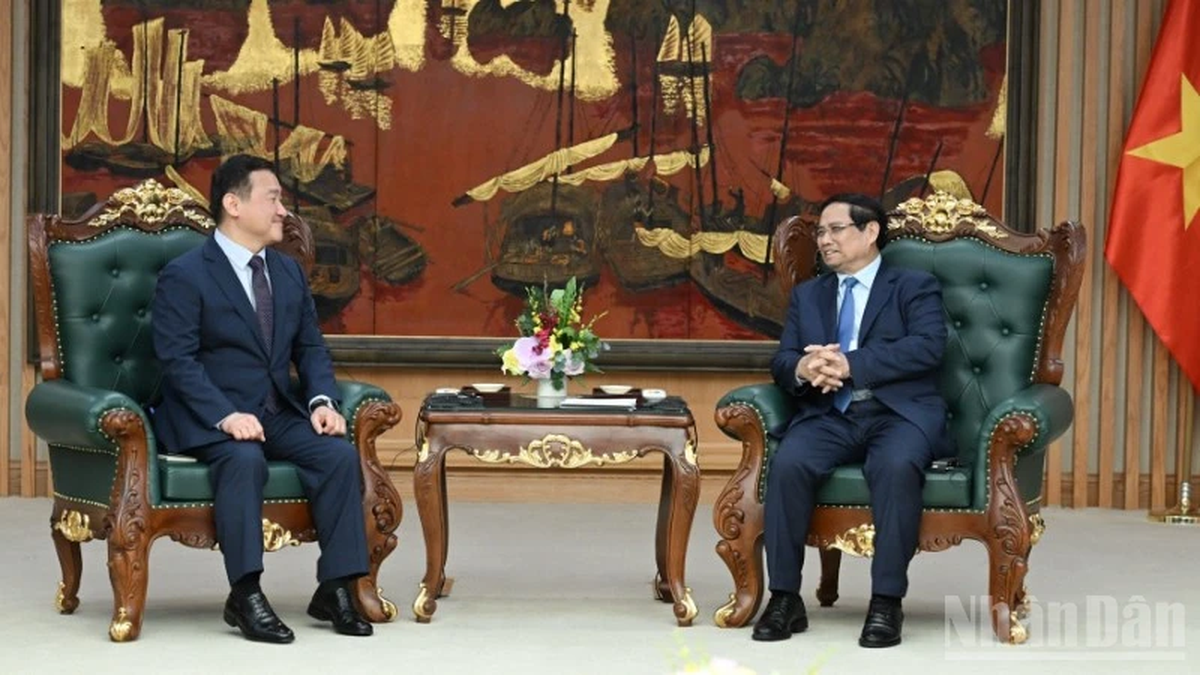
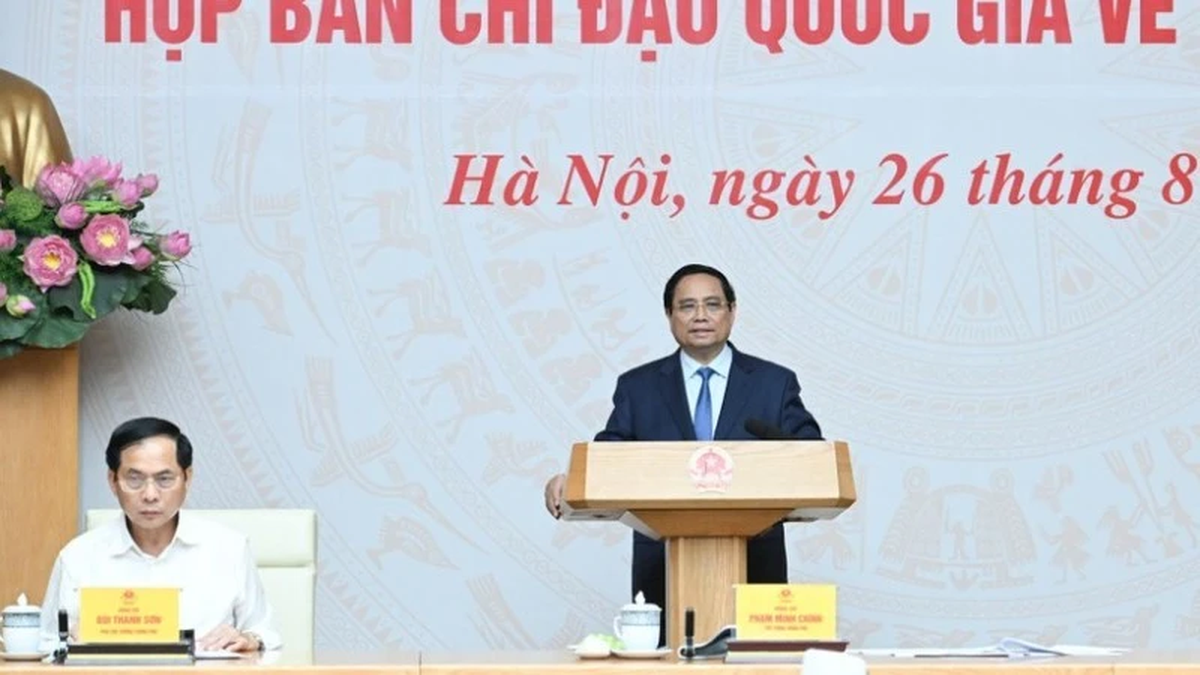
![[Photo] Prime Minister Pham Minh Chinh receives CEO of Samsung Electronics](https://vphoto.vietnam.vn/thumb/1200x675/vietnam/resource/IMAGE/2025/8/26/373f5db99f704e6eb1321c787485c3c2)
![[Photo] Prime Minister Pham Minh Chinh chairs meeting of National Steering Committee on International Integration](https://vphoto.vietnam.vn/thumb/1200x675/vietnam/resource/IMAGE/2025/8/26/9d34a506f9fb42ac90a48179fc89abb3)

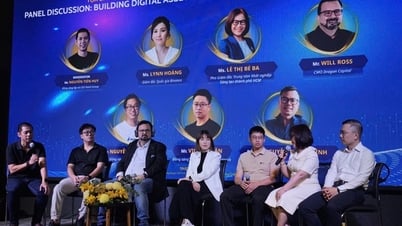



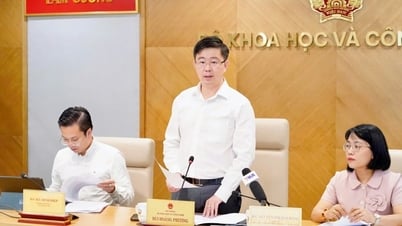

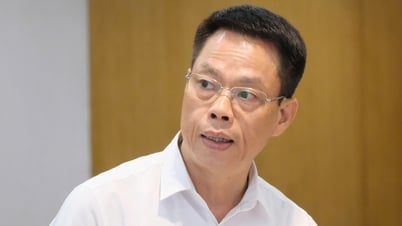

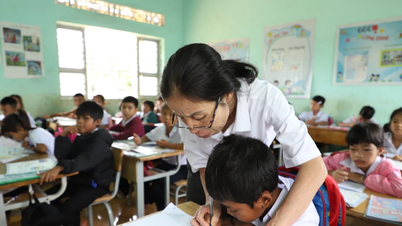

![[Podcast] Vietnam attracts tech talent with outstanding tax and residency incentives](https://vphoto.vietnam.vn/thumb/402x226/vietnam/resource/IMAGE/2025/7/22/eb4c1229d0b3432082db36883a8e2ea6)

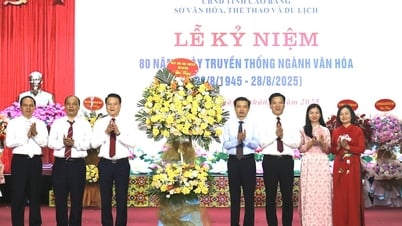









































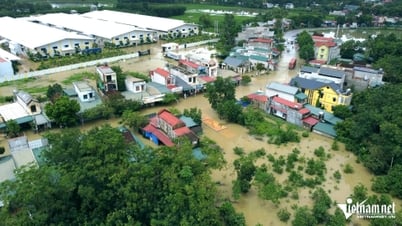

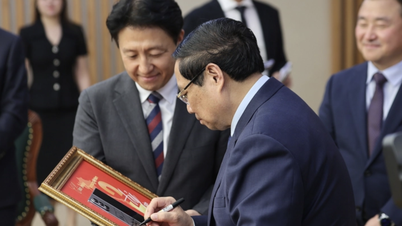




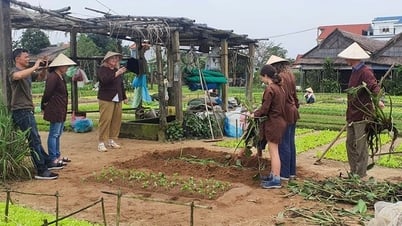


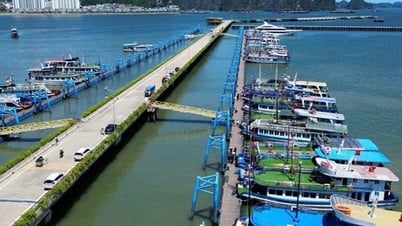
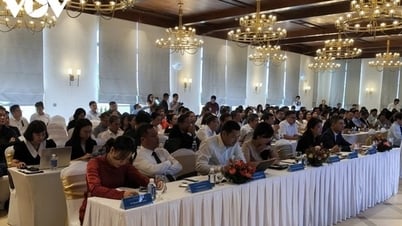
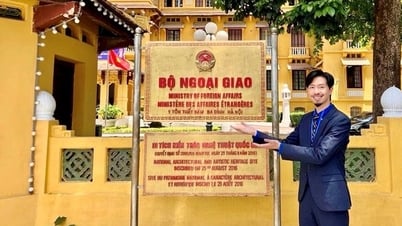







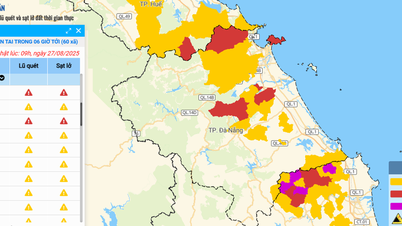

















Comment (0)